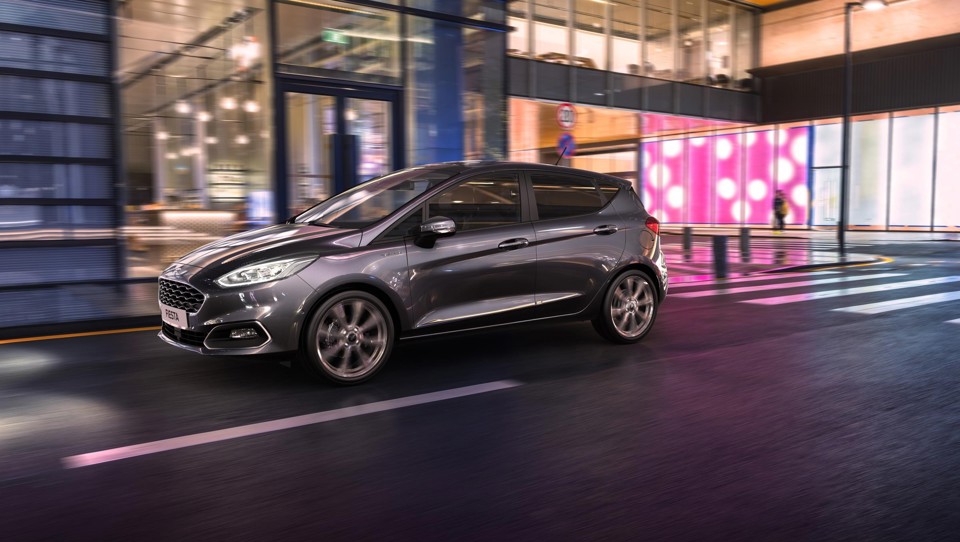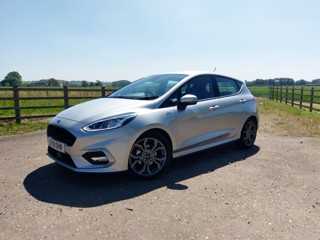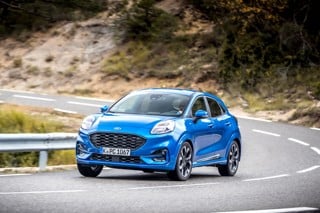Ford as improved the efficiency of its best-selling Fiesta model, with the addition of new mild-hybrid powertrains.
The EcoBoost Hybrid engines, which debuted in the new Puma, are now offered in the Fiesta with 125PS or 155PS.
CO2 emissions are reduced by 20g/km from 129g/km to 109g/km on the 125PS engine. The new 155PS version emits 116g/km.
Ford EcoBoost Hybrid powertrains are available from £19,860 with Fiesta Titanium. They feature a belt-driven integrated starter/generator (BISG) in place of the standard alternator, enabling recovery and storage of energy usually lost during braking and coasting to charge a 48-volt lithium-ion air-cooled battery pack.
The BISG also acts as a motor, integrating with the engine and using the stored energy to provide torque assistance during normal driving and acceleration, as well as running the vehicle’s electrical ancillaries.
Ford also offers a non hybrid 125PS 1.0-litre EcoBoost engine with a new seven-speed dual-clutch automatic transmission. It provides efficiency improvements of up to 15% per cent compared to the out-going 100PS 1.0‑litre EcoBoost six-speed automatic configuration.
An 85 PS 1.5-litre TDCi diesel engine is also offered for high-mileage drivers.
Alongside the new powertrains, Ford has added driver assistance technologies including Adaptive Cruise Control with Stop & Go and Speed Sign Recognition, designed to deliver less stressful driving experiences on highways and around town.
The Fiesta is now better connected, too, following the introduction of a standard FordPass Connect modem, enabling a range of functions via the FordPass mobile app.
Ford Fiesta range CO2 and fuel economy:
|
Model |
Power (PS) |
CO2 from (g/km WLTP) |
MPG from (WLTP) |
|
1.0-litre EcoBoost |
95 |
116 |
53.3 |
|
1.0-litre EcoBoost auto |
125 |
129 |
49.5 |
|
1.0-litre EcoBoost Hybrid |
125 |
109 |
57.6 |
|
1.0-litre EcoBoost Hybrid |
155 |
116 |
55.4 |
|
1.5-litre TDCi 6-speed manual |
85 |
114 |
62.8 |






















Login to comment
Comments
No comments have been made yet.